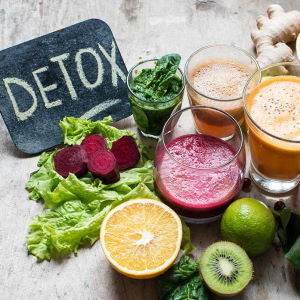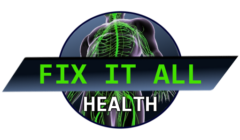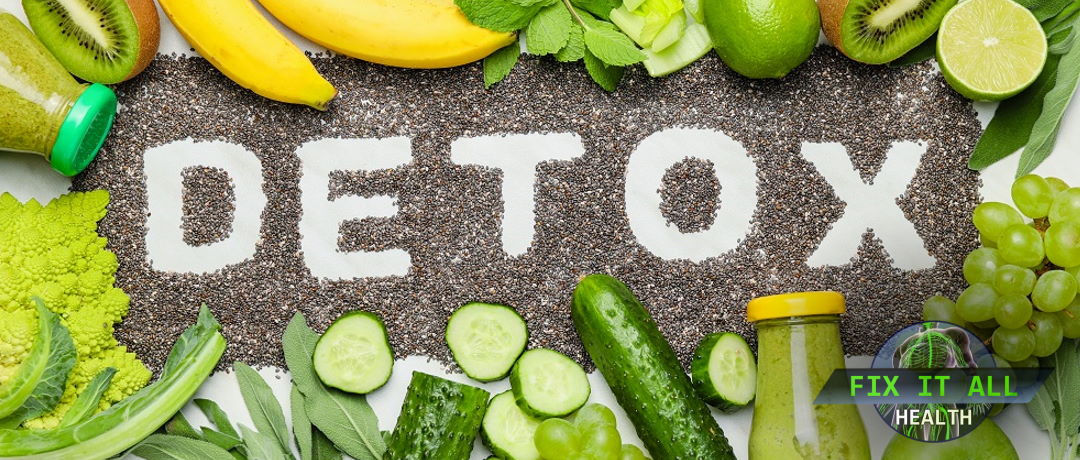There are many ways to improve your health in a safe and natural way that does not involve adding chemicals to you body. However, before you start, it is best to know first what you are getting into. Therefore, here What You Need to Know Before Starting a Detox program.
First off, you need to know the difference between a cleanse, a detox, clean eating, and an elimination diet. This is because it will help you determine what you need to become healthy.
Detox – A detox focuses on releasing toxicity from metals, chemicals found in cleaning products, cigarette smoke, food and drink, and other sources, sometimes from specific organs and/or the blood stream.
 Cleanse – A cleanse focuses mainly on cleansing the organs on a deeper level and removing unwanted wastes that accumulate in the colon, digestive tract, and liver that can lead to disease or gut imbalances such as candida, parasites, and unwanted pathogens.
Cleanse – A cleanse focuses mainly on cleansing the organs on a deeper level and removing unwanted wastes that accumulate in the colon, digestive tract, and liver that can lead to disease or gut imbalances such as candida, parasites, and unwanted pathogens.
Clean Eating – Clean eating is avoiding foods that are processed or refined, which may contain nitrates, chemicals, and pesticides, you reduce your exposure to free radicals that can harm your system and cause disease. By choosing ingredients in their most natural, whole state, including clean animal- or plant- based proteins, and preparing them in healthy fats, you reduce inflammation in your body, and improve vitality.
Elimination Diet – An elimination diet starts by temporarily taking away the foods that may be harming your system. Too often we eat foods that create inflammation, decreasing the effectiveness of our digestion, which in turn leads to poor absorption of nutrients and minerals. When we eat foods that do not digest properly, it can cause gut imbalances, food allergies, and even depression.
The goal of an elimination diet is to uncover hidden food allergies and sensitivities and improve your digestion by discovering which foods are right for your body. During this process you make sure to read all the labels carefully to find hidden allergens. You also eat a wide variety of whole foods without restricting your calorie intake.
Now that you know the difference, and have chosen the Detox method, here is what you need to know before you begin
Things You Need to Know Before Starting a Detox program
Talking to Your Doctor
Before embarking on any detox diet, it’s best to speak to your doctor first. If you’re on medication or suffer from gastric issues or have type-2 diabetes, any fasting or meal changes may interfere with your treatment or exacerbate your health problems.
So, it’s best to err on the side of caution.
Choosing a Detox Method
There are many different methods of detoxing. You can choose to water fast, or you could do a juice fast or a raw food diet. Alternatively, you could use detox teas that are sold in stores. I generally like and tend to recommend a whole foods detox program.
Depending on your goal, you should choose the appropriate detox method. If you’re detoxing prior to starting a weight loss program, a 3-day water fast will more than suffice to cleanse your system so that you can get started.
However, if you’re morbidly obese and suffering from health issues such as inflammation, going on a detox diet such as a raw food diet or vegetable smoothies for a month would be more appropriate.
Planning the Right Time
If you’re planning on a 3 to 7-day detox, it would be good to do it when you don’t have to go to work and have no social engagements to attend. Doing a 3-day fast is best started on a Friday so that you can just spend the weekend at home dealing with any side effects.
It’s common to experience symptoms such as headaches, fatigue, and irritability, when you’re detoxing. Your body is cleansing itself and flushing the toxins out, which is why you may not feel too good. This discomfort will last for about 3 days and then disappear before you start feeling better.
Will You Be Eating?
Depending on your detox, you may or may not be eating. If you’re water fasting or only using detox teas, then it’s simple. You won’t be eating.
If you’re using juicing and raw food to detox, you’ll need to know what you’ll be eating and when your mealtimes will be. Plan it all out on paper so that there’s no guesswork involved.
Detoxing can be stressful and you do not want decision fatigue to happen because you’re clueless about what to eat for each meal.
If you have specific medical issues you may have to detox under the care of your healthcare provider.
Hydration
Water is crucial during a detox. You should try to aim for drinking half your body weight in ounces of water throughout the day. Staying dehydrated is key in general, but especially during a detox program. Your goal is to help flush those toxins right out.
Should You Exercise?
If you’re doing any form of exercise during a detox fast, it’s best to keep it low intensity. Walking, slow cycling, leisurely swims, etc. are fine. Your body is already stressed out during a detox.
Demanding too much from it during exercise will cause your body to release the stress hormone cortisol and that will mess with your detox. You want to be relaxed during the process.




